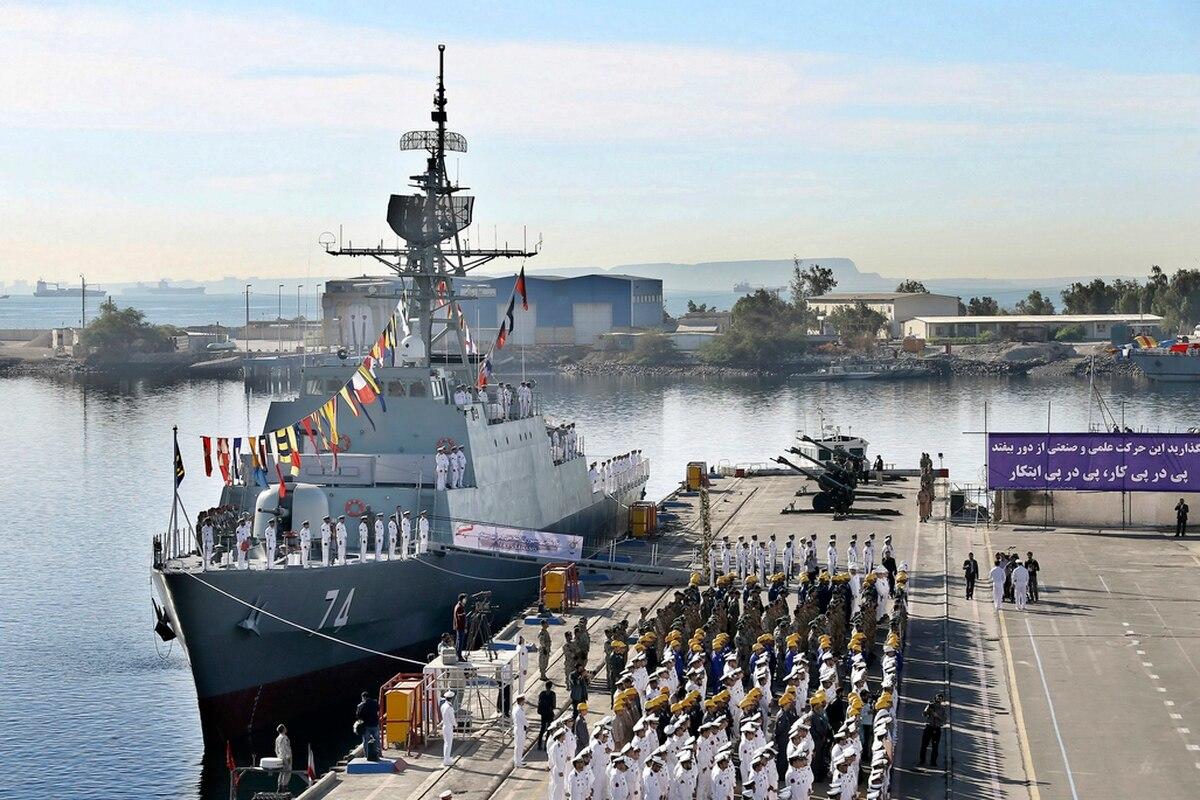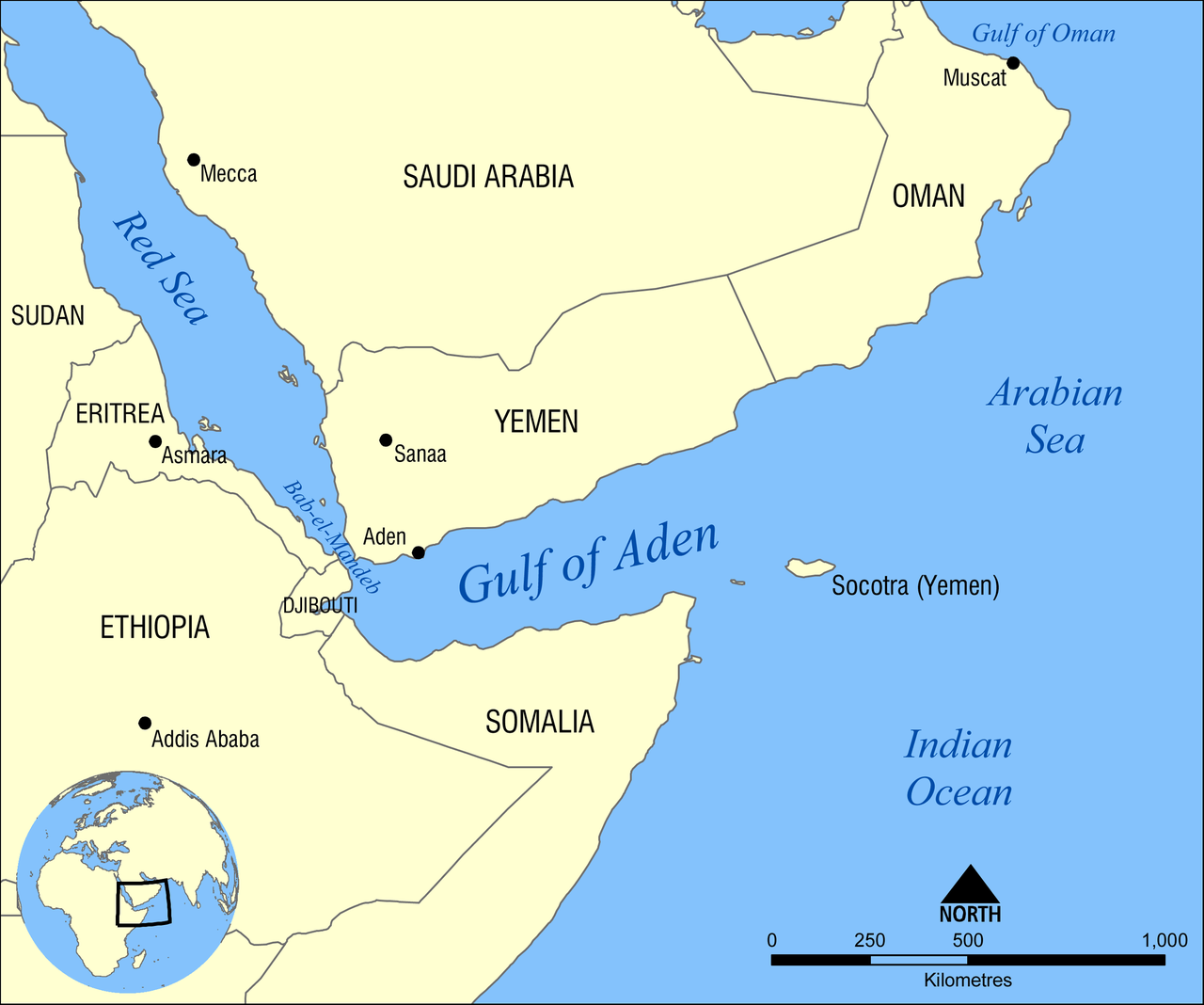The threshold to an armed conflict around the Persian Gulf just got even smaller.
On Monday, Iran said it had deployed two warships – a destroyer and a helicopter carrier – to protect the country’s commercial vessels around the Gulf of Aden, located between the Arabian Peninsula and Africa, and Persian Gulf region amid a growing US-driven military build-up in the volatile region, which recently culminated with several tanker seizures on both sides, the navy times reports.
Iran’s brand new destroyer Sahand and the supply ship/replenishment carrier Kharg whiuch has a helicopter pad and services as lositics support, were deployed to the Gulf of Aden and Sea of Oman and tasked with escorting ships in international waters.
The “Sahand” commissioned in December 2018, is Iran’s most advanced home-made warship. It has a stealth hull and can travel a further than the previous class destroyers without refueling. It is equipped with surface-to-surface and surface-to-air missiles as well as anti-aircraft batteries and radar and radar evading capabilities.

Tehran’s decision to escort its cargo vessels comes at a time of escalating tensions in the Gulf, with US and UK warships operating in and around the Persian Gulf under the “defensive” premise that Iran is the aggressor behind June’s attacks on two tankers in the Strait of Hormuz. Accusing Tehran of ‘sponsoring terrorism’ and running a secret nuclear program, Washington has beefed up its military in the region with more troops and hardware, including an aircraft carrier and bombers.
In early July, the Iranian tanker Adrian Darya, previously known as Grace 1, was seized off the coast of Gibraltar for allegedly carrying oil to Syria in violation of EU sanctions. It was later released, despite US demands that it be detained again. In retaliation, Iran detained a British oil tanker in the Persian Gulf; it remains in Tehran’s custody.
The United States’ most devoted ally in Europe, the UK, is the only country, so far, to support Trump’s call for an international anti-Iran armada in the region. It has sent three new warships to reinforce its presence there in recent weeks, with the stated goal of protecting shipping lanes.
Meanwhile, after Iran’s foreign minister Javad Zarif made a surprise appearance at the G-7 summit in Biarritz over the weekend where he failed to achieve any notable diplomatic breakthroughs, he then darted off to Beijing, where he met with China’s Foreign Minister Wang Yi in Beijing. This was s the third time the Iranian FM has visited China this year, as the Iranian tries to reinforce Chinese support of Iran in its conflict with the US.
Iran and China need to join forces to counter unilateralism and “contempt for international law,” Zarif told his Chinese counterpart at a meeting in Beijing on Monday. WHile Zarif did not mention the U.S. directly in opening remarks to Wang Yi at a state guesthouse, he appeared to be referencing the administration of President Donald Trump.
China has been a close Iranian economic partner and is among the signatories to the 2015 nuclear accord, which has been unraveling since President Donald Trump pulled the U.S. out of the agreement.
“Unilateralism is on the rise. Rejection of international law, not just lack of respect for international law but in fact contempt for international law, is on the rise and we need to work together,” Zarif said, after making an impromptu five-hour visit Sunday to the seaside resort of Biarritz, where he met with French President Emmanuel Macron and French, German and British diplomats.
He said he planned to brief Wang on “the latest developments as well as my tour of Europe and my discussions in Biarritz with our French colleagues” in the nuclear agreement.
Wang said in his opening remarks that “unilateralism is rising and power politics is emerging. Facing this situation, China as a responsible country agrees to work with Iran and other countries to work together for multilateralism, the basic rules of international politics and uphold the rightful interests of each country.”
During his trip to China, which has emerged as an obvious ally in Iran’s feud with Trump, Zarif was said to focus on security in the Strait of Hormuz. It is unclear if he was successful, however if one more Chinese warships unexpectedly appear in the Persian Gulf, we will know the answer.
via ZeroHedge News https://ift.tt/2ZjZsMM Tyler Durden
